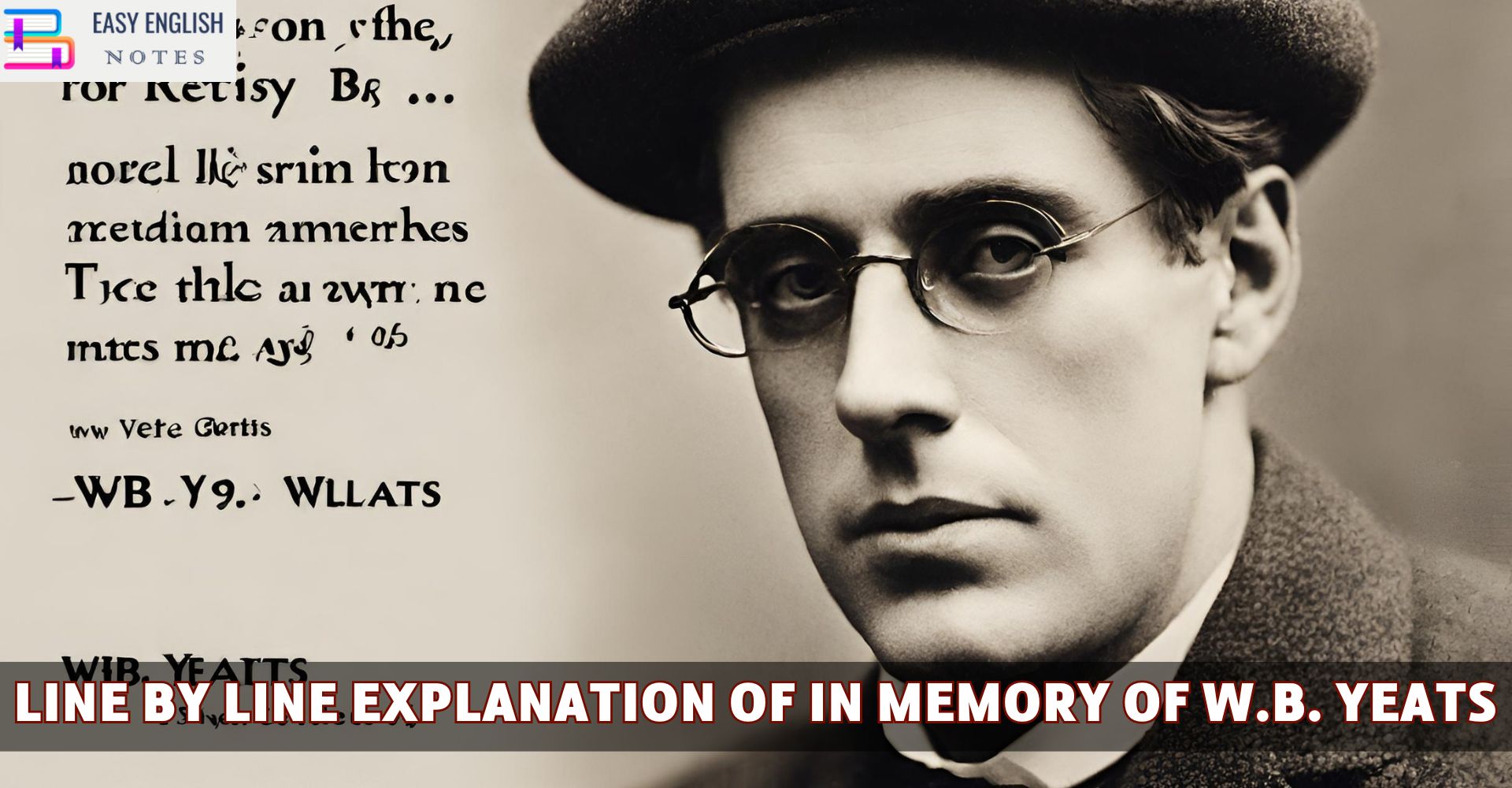(1) The provinces of his body revolted
The squares of his mind were empty
Silence invaded the suburbs,
The current of his feeling failed:
Expl. In the present poem ‘In memory of W.B. Yeats’ the poet Auden says about the death of W.B. Yeats who died in January, 1939 that is very cold season in England. But specially the death of W.B. Yeats was very cold. In this stanza the poet compares W.B. Yeats to an emperor. The parts of his body were the states of the empire which refuse to follow his will. squares or different parts of his mind becomes empty i.e., lose their power of thinking outlaying parts of the body the suburbs, become silent.. insensitive and the current of feeling like lives of communication is a country cease to flow. The poet gradually dies.
(2) But in the importance and noise of tomorrow
When the brokers are roaring like beastson
the floor of the Bourse.
And the poor have suffering to which they are fairly accustomed.
Expl. These lines have been summed up from the famous poem “In Memory of W.B. Yeats’. The death of W.B. Yeats is a shock for the poet. According to the poet the world will continue as usual, despite the death of the poet. Tomorrow has its own values. Noise and rustle its own problem which are considered important. The poet’s death will not count for much. The business will be continued as usual in the market place. The poor will be continued poor. The poet wants to say that nothing can be stopped by the death of the poet. Nature as well as the human activity will be continued.
(3) Worships language and forgives
Everyone by whom it lives’
Pardons cowardice, conceit,
Lays its honours at their feet.
Expl. Here in the poem “In Memory of W.B. Yeats’ the poet says that the death of Yeats was like the coldness of January. He laments on the death of the poet. The poet wants to say that there must be respect for the way of the saying of the poet anything. There are many faults in the characters of the poet like cowardice, conceit, pride, vanity. But all these things must have been forgotten. Only we should lay our honours in the feet of the poet.
Also Read :
- Compare Hamlet with Macbeth, Othello and other Tragedies
- “The Pardoner’s Tale” is the finest tale of Chaucer
- Prologue to Canterbury Tales – (Short Ques & Ans)
- Confessional Poetry – Definition & meaning
- Line By Line Explanation Of The Poem The Eve of St. Agnes
“In Memory of W.B. Yeats” is a poignant poem by W.H. Auden, written as an elegy for the renowned Irish poet William Butler Yeats, who passed away in 1939. This poem is not just an expression of grief for Yeats’s death but also a meditation on the role of poetry and the poet in a world on the brink of war. Let’s break down its major themes and components:
- Divided Structure: The poem is divided into three distinct parts, each serving a different purpose. The first part is a direct elegy, the second part reflects on the role of poetry, and the third part addresses the poet’s legacy.
- The Elegiac Opening: The first part begins with the moment of Yeats’s death, painting a bleak, winter landscape. Auden uses this setting to symbolize the end of an era and the loss of a great poetic voice.
- Poetry in a Time of Crisis: The second part delves into the function of poetry in a world facing turmoil and upheaval. Auden ponders whether poetry can inspire change or if it is merely a passive observer of events.
- The Poet’s Legacy: The third part shifts to a more hopeful tone, suggesting that Yeats’s words will live on and continue to inspire. Auden argues that even though a poet dies, his insights and contributions to literature remain, influencing future generations.
- Themes of Transformation and Continuity: Throughout the poem, Auden explores themes of transformation and continuity. He acknowledges the changing world but also the enduring nature of artistic legacy.
- Reflection on Death and Art: The poem is also a reflection on the relationship between death and art. Auden suggests that while the poet’s physical presence is gone, his artistic spirit and works endure.
“In Memory of W.B. Yeats” is thus a multifaceted poem that mourns a great poet while also contemplating the power, limitations, and lasting impact of poetry in the modern world. Auden’s eloquent expression and his exploration of profound themes make this poem a memorable tribute to Yeats and a significant work in its own right.











